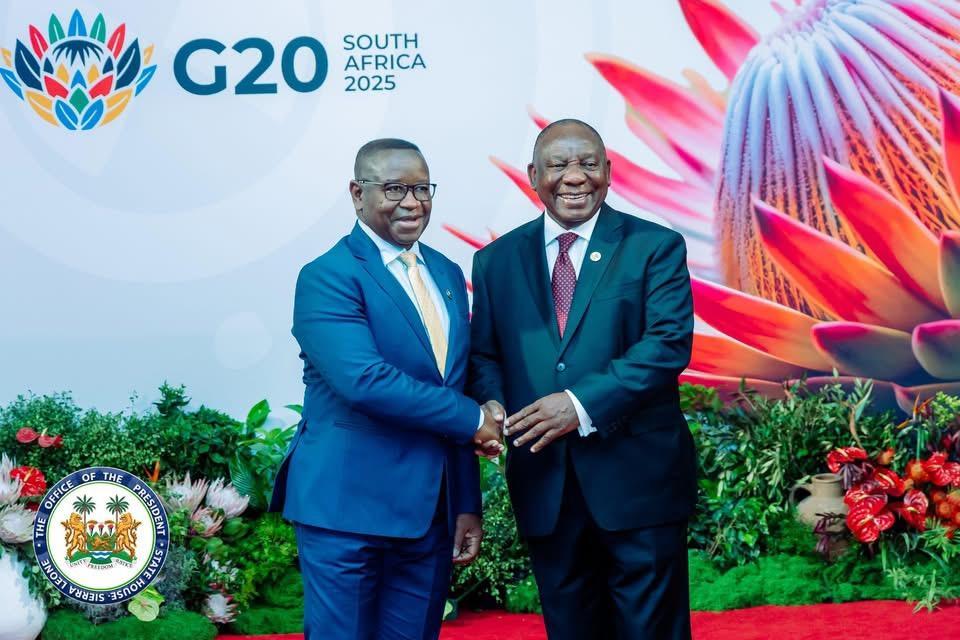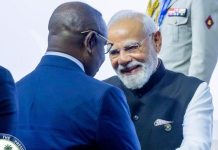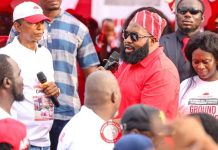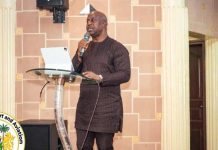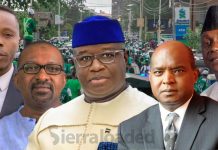Africa-Press – Sierra-Leone. Sierra Leone’s President and Chair of the ECOWAS Authority of Heads of State and Government, Julius Maada Bio, has during the 2025 G20 Summit stressed the vital role of Africa’s critical minerals in the global clean-energy transition and proposed the establishment of a G20–Africa Compact on Critical Minerals.
The President’s intervention notably places Africa’s resource wealth at the centre of global economic discussions, calling for a fairer distribution of the value generated by these minerals.
During his address in Johannesburg, Bio established that Africa holds nearly one-third of the world’s critical minerals, including materials essential to renewable energy technologies, advanced manufacturing, and artificial intelligence.
He pointed to Sierra Leone’s significant contributions, with its vast reserves of iron ore, rutile, bauxite, and diamonds. Bio warned that without systemic change, Africa risks repeating the historical pattern of supplying raw materials that fuel global prosperity, while reaping minimal economic benefit.
“For too long, our resources have powered global industries while our nations captured the least value. This generation must break that cycle, starting with a G20–Africa Compact anchored in justice,” President Bio stated.
His call for a new compact notably reflects a growing consensus that the global energy transition must be both equitable and inclusive. The proposed framework aims to establish transparent contracts, attract investment into mineral processing, and ensure fair revenue models that prioritise African development and job creation. Bio stressed that Africa should not only supply the minerals, but also process and refine them locally to create jobs and stimulate industrial transformation.
“It is not enough for Africa to supply the minerals. We must process them, refine them, and benefit from them. That is how we create jobs, industries, and transformation,” he added.
While the broader theme of the summit, “Building Our Economy: The Role of Trade, Finance for Development and the Debt Burden,” covered various global economic issues, Bio’s speech strategically directed attention to the geopolitical and economic significance of Africa’s mineral wealth.
He went forward to argue that the clean-energy future the world is striving for cannot be realised without Africa’s resources and that Africa must be included in the value derived from this future.
Bio also linked the conversation on critical minerals to the broader economic challenges facing African nations, such as slowing global growth, tightening financial conditions, and rising debt burdens. He reiterated Sierra Leone’s support for accelerated debt restructuring, expanded Special Drawing Rights through regional development banks, and long-term financing for infrastructure, digital systems, and trade.
On the issue of climate change, he reminded world leaders that Africa bears a disproportionate share of the global climate burden, despite contributing less than four percent of global emissions. Drawing on personal experience, he highlighted the impact of climate change in Sierra Leone, where communities face flooding, landslides, and disrupted agriculture due to erratic weather patterns. Bio renewed his call for the establishment of a West Africa Climate Adaptation Acceleration Facility to address critical issues such as food security, clean energy, and coastal protection.
He stressed the importance of ensuring that the governance of artificial intelligence (AI) is ethical, inclusive, and equitable. While AI and digital innovation offer immense potential for development in Africa, Bio cautioned that these technologies must be accessible to all, and global frameworks must prevent the deepening of technological inequalities.
President Bio concluded by urging G20 leaders to commit to a new development compact grounded in fairness, shared prosperity, and long-term collaboration with Africa. He reaffirmed that the proposed G20-Africa Compact on Critical Minerals represents not only a significant economic opportunity but also a pivotal moment to address historical imbalances and secure a just future for the continent.
For More News And Analysis About Sierra-Leone Follow Africa-Press

